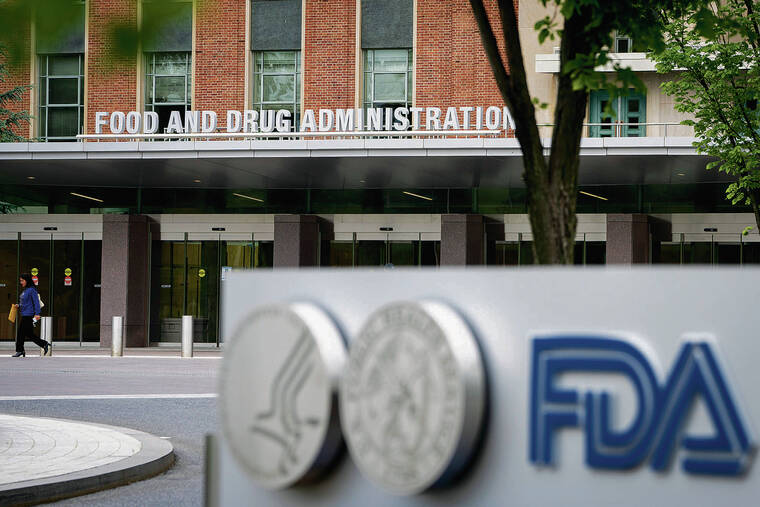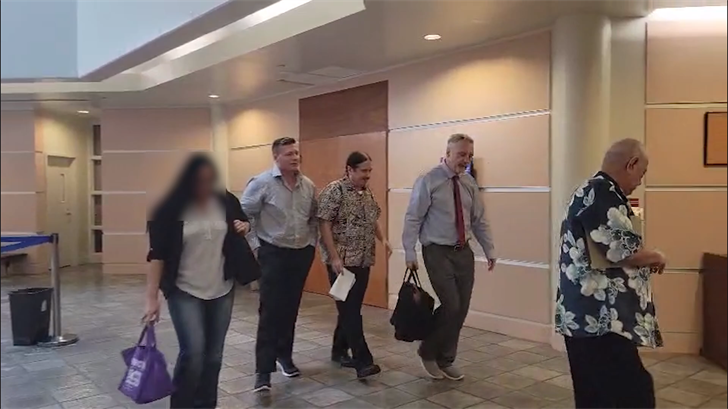Copyright staradvertiser

A federal judge in Honolulu ordered the U.S. Food and Drug Administration to follow science and the law when reconsidering 2023 restrictions on an abortion pill deemed safe for more than a decade. The order doesn’t change any of the current restrictions but it does require the agency to reevaluate a requirement that the providers of mifepristone sign a form that they are qualified and that they have reviewed the patient agreement form with the patient before sending it to prescribing pharmacies. Given the overwhelming evidence that the pill is safe, the patient agreement form and a pharmacy certification requirement were challenged as unnecessary requirements. In an order issued Thursday, U.S. District Judge Jill A. Otake wrote that the 2023 risk evaluation and mitigation study was “unlawful under the Administrative Procedure Act and (remanded) the matter to the FDA with instructions to address the statutorily- mandated factors and consider relevant evidence” the FDA allegedly disregarded. The American Civil Liberties Union asked Otake for summary judgement in a 2017 case brought by a Kauai-based physician and two nonprofits challenging requirements for prescribing and using mifepristone were too much given the drug’s safety. The request came after President Donald Trump’s administration announced that it would review the drug and likely restrict it out of use. The ACLU first filed the case in 2017 on behalf of Heidi Purcell, a physician with the Society of Family and the California Academy of Family Physicians against U.S. Department of Health and Human Services Secretary Robert F. Kennedy and Commissioner of Food and Drugs Martin A. Makary. “I am pleased the Court recognized that the FDA’s extreme restrictions on mifepristone are not grounded in logic or science. But while this decision should be a call to action for FDA to finally lift its medically unjustified restrictions on medication abortion, I fear the Trump Administration is gearing up to make things worse,” said Purcell, in a statement “In (Hawaii), where patients may live a flight away from the nearest provider, losing a telemedicine option for mifepristone would be devastating. The FDA should be working to ensure that patients in rural and underserved areas like Hawaii can access essential medications, not throwing up needless barriers to care.” The FDA first approved mifepristone, a pill used in the majority of medication abortions, in a regimen with misoprostol in 2000. Mifepristone blocks the effect of a hormone necessary for pregnancy, while misoprostol causes contractions and bleeding that empty the uterus, according to FDA. The FDA requires some drugs to go through a “risk evaluation and mitigation strategy” and may further restrict the drug by imposing “elements as are necessary to assure safe use” and mifepristone is subject to both. Otake concluded that the FDA violated the law by failing to provide a “reasoned explanation for its restrictive treatment of the drug,” which was compounded by its decision to limit the scope of information it considered when evaluating the restrictions. “More specifically, the (FDA) neglected to consider certain required statutory factors and generally failed to sufficiently explain the logic behind any reasoning it did provide.” Otake wrote. Otake’s order maintains the current restrictions on mifepristone but sent the requirements back to the FDA for a review consistent with her instructions. Wookie Kim, ACLU of Hawaii Legal Director, served as co-counsel in the case and said in a statement that the ACLU is grateful Otake “held FDA accountable for failing to follow the law in restricting access to medication abortion.” “This ruling has special meaning here in Hawaii, where patients often face geographic and financial barriers that make accessing reproductive care especially difficult. It also affirms that decisions about reproductive freedom must be guided by science, not politics,” said Kim.



